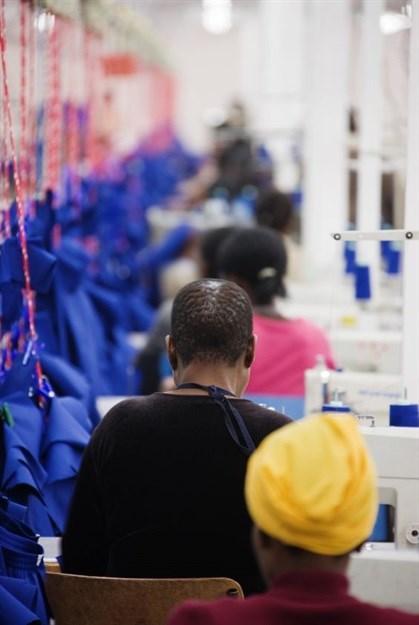






The clothing, textile, footwear and leather manufacturing sector is a key employment driver especially in the Western Cape and KwaZulu-Natal, where most factories are located.
The Statistics SA Quarterly Employment Survey released this week shows that in the year to September employment in the sector increased 1.8%. This came after high levels of job losses had decimated the sector for more than two decades when at least 50,000 jobs were lost.
The government's Industrial Policy Action Plan has identified the sector as "high priority" because of its labourintensive character.
In many developing countries, the sector has provided the early impetus for industrialisation, economic growth and job creation.
But in the last decade the sector has been hit hard by imports from China and other Asian countries.
Sactwu general secretary Andre Kriel said yesterday employment over the past year had been driven by growth in the clothing sector (676 new jobs), textile sector (1,197 new jobs) and the leather sector (268 new jobs). Kriel said these figures compared favourably to the declining fortunes of the manufacturing sector as a whole, in which employment decreased 0.3% over the same period.
"This reinforces Sactwu's opinion that the (clothing, textile, footwear and leather) manufacturing industry is entering a new period of greater stability, and hopefully higher levels of growth," Kriel said.
Much of this positive turn in employment was attributed to strong support for the industry from the government since 2009, coupled with the union's Save Jobs campaign.
"Significantly, this is the second consecutive quarter that employment in our industry has grown, following the 3% increase recorded in the previous quarter," said Kriel.
Johann Baard, executive director of the Cape Clothing Association, representing clothing and textile and manufacturers, echoed Kriel's sentiments. He said the sector had stabilised because government support measures had led to greater competitiveness and improved productivity due mainly to the installation of new plant, equipment and machinery.
The exchange rate had served as a growing disincentive for retailers to source off shore, Baard said.
They continued to experience cost pressure in the mass-produced commodity clothing sector, "which is where the real potential for massive job creation lies. Here we still experience huge influx of cheap imports from locations such as China, Vietnam, Madagascar, Lesotho and Swaziland," Baard said.
The survival of compliant factories who pay the bargaining council wage rates was increasingly being threatened by an ever-growing number of noncompliant factories in the nonmetro rural locations of SA, "many of whom pay less than half the legal minimum wages", said Mr Baard.
Figures show about 27,000 workers are employed in these noncompliant factories. "This is a major challenge to the future of the bargaining council and is something the parties to the council will need to address in order to secure the sustainability of compliant factories, particularly in the metro areas of Johannesburg, Cape Town and Durban."

For more than two decades, I-Net Bridge has been one of South Africa’s preferred electronic providers of innovative solutions, data of the highest calibre, reliable platforms and excellent supporting systems. Our products include workstations, web applications and data feeds packaged with in-depth news and powerful analytical tools empowering clients to make meaningful decisions.
We pride ourselves on our wide variety of in-house skills, encompassing multiple platforms and applications. These skills enable us to not only function as a first class facility, but also design, implement and support all our client needs at a level that confirms I-Net Bridge a leader in its field.
Go to: http://www.inet.co.za